Syrian Kurdistan will have its peshmergas – with the support of the USA. We have a historic milestone before us. It is essential not only for the Kurds but also for the stabilization of the whole Near East region.
 Conference table in Kurdish Erbil
Conference table in Kurdish ErbilThe highest representatives have (despite their complicated relationship) reached an important agreement.
Complicated relationship of the Iraqi Kurds and Syrian Kurds
The peshmergas (guerilla fighters) trained in Iraqi Kurdistan shall be fighting alongside the KurdishPeople’s Protection Units (YPG) in the territory of Syria – with broad American air and land support.
The relationship between the Iraqi Kurdistan and its Syrian counterpart has never been exactly simple for many reasons. The strongest one being the political fragmentation of the Syrian Kurds.
The Kurdistan Democratic Party (PDK) under the leadership of Masud Barzani (current president of the Kurdistan Regional Government (KRG or HHK)) has dominated on the Iraqi side of the border practically since the 90s in the Iraqi Kurdistan.
The Iraqi Kurdistan is an autonomous Kurdish territory in the northeast Iraq consisting of governorates Halabja, Sulaymaniyah, Erbil and Dohuk. There are 4 864 000 residents living in this area of roughly 36 000 square kilometres in size, which is around 20% of the Iraqi population.
The People’s Protection Units (YPG) (Yekîneyên Parastina Gel) are an armed wing of the Democratic Union Party (PYD) in Rojava.
The Kurdistan Regional Government (KRG or HHK) (Hikûmetî Herêmî Kurdistan) is an official governing organ of a Kurdish region located in the north of Iraq called the Iraqi Kurdistan or the Southern Kurdistan.
The Kurdistan Democratic Party (PDK) (Partiya Demokrat a Kurdistanê) is a Kurdish social democratic political party in the Iraq
The Kurdistan Democratic Party of Syria (PDK-S) (Partiya Demokrat a Kurdistanê li Sûriyê) is a political party of Syrian Kurds founded in the 1957 by Kurdish nationalists in the north of Syria.
The Democratic Union Party (PYD) (Partiya Yekîtiya Demokrat) is a political party founded in the Rojava region of Syria by a group of Kurdish activists.
The Kurdistan Workers’ Party (PKK) (Partiya Karkerên Kurdistan) has originated in Turkey and one of its main goals is the fight for creation of autonomous Kurdish state.
Under difficult circumstances instated by the Ba’athist regime Bashar al-Assad based on an Arabic supremacism and characterized by a harsh repression of non-Arabic minorities there has been no uniting entity until now.
The favourite party of Barzani’s government from the countless parties of a Syrian Kurdish origin was understandably the Syrian branch of his ownKurdistan Democratic Party of Syria (PDK-S).
There were some complications in 2011 after the beginning of the Syrian revolution and following civil war. Although the Syrian Kurds have managed to drive off most of the soldiers of Assad and many kinds of jihadists from the large part of theRojava region – the Syrian Kurdistan. In the end, however, the uniting force capable of saving Rojava from a racist dictator and jihadists was The Democratic Union Party (PYD). This party is the most persecuted one by Assad’s regime and somewhat distanced. In addition, they consider themselves to be a sister party of The Kurdistan Workers’ Party (PKK) based in Turkish Kurdistan.
President Masud Barzani wiht Salih Muslim

The PKK is currently considered as a terrorist group in the Turkey, EU and USA. The other Kurdish parties including KDP-S by cooperating with the rest of Syrian opposition. Despite that, the non-Kurdish opposition is under a strong influence of Turkey, which is highly against the Kurds.
The dependence of the Iraqi Kurds on Turkey
This whole situation, when the KDP-S and other Kurdish parties in Turkish exile are in the strong opposition to PYD (which is currently by far the most relevant partner representing most of the Syrian Kurds) is furthermore amplified by a contemporaryexistential dependence of the Kurdistan Regional Government on Turkey.
The Iraqi Kurdistan is in a deep financial crisis at the moment. That is caused by several factors, the most relevant being:
- The war expenses from fighting much better equipped Islamic State.
- The necessity of feeding and securing more than a million refugees.
- The dependence of their economy on the oil and the price of it being an all-time low.
- Most of all, the Baghdad government is refusing to pay 17% of their budget to the Kurdistan Regional Government, which is against the federal constitution.
Selling their oil remains is an only means of survival for Barzani’s government. More specifically selling it on their own against the disapproval of Baghdad. Their only option is to go through Turkey, therefore they become existentially dependent.
Turkey has abused this relationship in order to alienate the Iraqi Kurds and the Syrian Democratic Union Party. However, Turkey has supported the cooperation of the HHK with “their” exiled Kurdish opposition. They are at least suspected to be under a strong Turkish influence.
The project of “Rojava peshmergas” (an army composed of Syrian Kurds, trained in the Iraqi Kurdistan, following the example of Iraqi peshmergas) originated from cooperation. They are supposed to be fighting under the flag of a united Kurdistan and to be under command of Kurdish exile opposition, mostly Syrian revolution structures based in Turkey.
Of course, the PYD refused any crossing of these units in the Rojava area.
United States are supporting Kurds
The USA (most important strategic ally of the Kurdistan Regional Government as well as Turkey’s) have changed this situation to become advantageous for Turkey greatly almost a year ago. When the Islamic State jihadists unofficially supported by Turkey, threatened to capture Kobane (a major city in Rojava), the USA initiated the bombardment of the Islamic State and an air support to People’s Protection Units.
When Kobane was under a Turkish blockade, the USA even dropped weapons to help the defenders. Basically, the greatest partner of Turkey has begun to directly support and coordinate the fight of YPG and PYD (which are considered as terrorists by Turkey, in addition they have links to PKK which is even on the American list of terrorist groups) against the Islamic state (which continues to be an unofficial ally of Turkey and they share common interests).
The American support to Kurds continues successfully, the links to PKK do not seem to matter. It is therefore obvious that they are no longer perceived as a terrorist organisation by the USA (also they were added on the list wrongfully), more probably they were added on the list in order to please Turkey (in order to strengthen the “alliance”), not because they are actual terrorists and were likely never truly thought of as such.
The only brighter moment of the Turkish animosity to the PYD was the allowance of passage of a 150 peshmergas coming to help the defenders of Kobane through Turkey. But this was only achieved after a serious pressure from the international community (USA included) and only for limited time and under strict restrictions – the peshmergas were not allowed to leave literally one gun in Rojava.

However, at the beginning of August the situation radically changed. The Turkish “anti-terrorist” operation, which started as several symbolic airstrikes against the Islamic State but then evolved into massive bombardment campaign against units of the PKK (even on the territory of HHK), even despite that they are one of the most important forces of the coalition against the Islamic State.
Turkey has clearly declared its unwillingness to fight the Islamic State by such an act, on the other hand they are clearly willing to fight the enemies of IS.
Key agreement of the Kurds and the USA
The most important reaction of the international coalition led by the USA are the events of 15.9.2015. In Erbil (also known as Hewler), the capital of the Iraqi Kurdistan the president Masud Barzani has officially met with the co-president of the PYD Salid Muslim and Brett McGurk the ambassador of the USA in the international coalition against the IS.
The dealings have 3 most important results:
- The USA will begin to directly provide military support to the YPG (and its sister women militia – the YPJ). In practice, in addition to direct air support they will supply drops of military materials and direct land support of the troops fighting alongside them. This is now officially launched.
- The Rojava peshmergas trained in HHK will be present in the Syrian Kurdistan, for now the amount is 5000 ready soldiers, however they won’t be placed under the command of the exile Kurdish opposition in Turkey, but the YPG.
- The advancement of the USA, PYD (Syria), and HHK (Iraq) will be coordinated from their common command centre, there will be representatives of all sides.
This is critical improvement of the relationship between the USA and the PYD – which are labelled as terrorists by Turkey. In addition, the Iraqi Kurdistan (another important partner of Turkey) has taken the same steps.
In the context of official common coordination in the framework of one united command centre and direct land support by infantry units, it is utmost nonsense to claim that PKK/PYD/YPG are terrorist groups.
This is a historic milestone. Not only for the Kurds but also for the stabilization of the whole Near East region. There is nothing much to do, than to reconsider the role of Turkey in this “war on terror” (in fact war on PKK) and non-war against the Islamic State, the true terror.

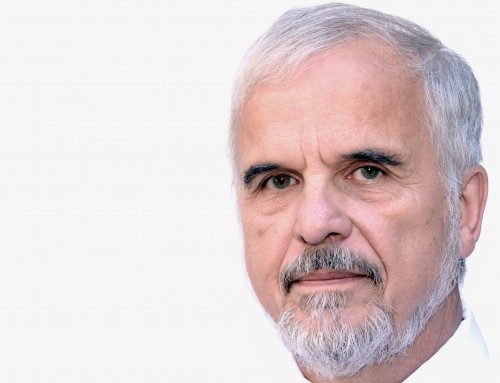
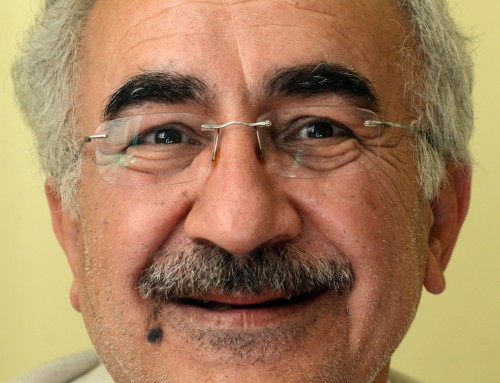
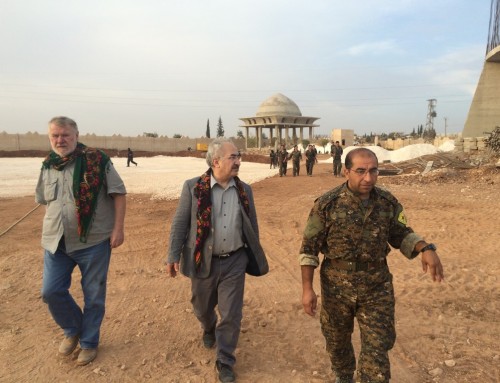
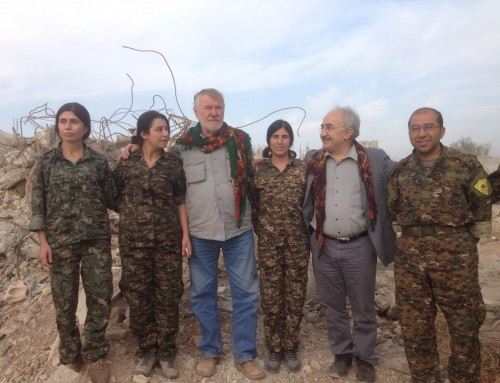
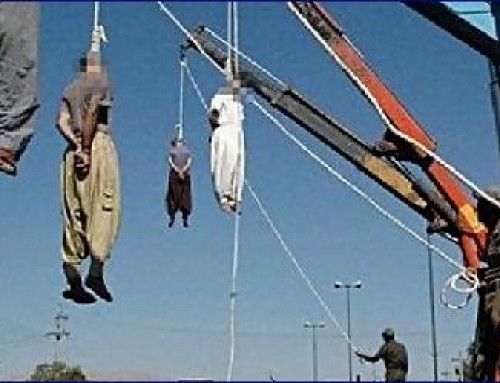
Leave A Comment